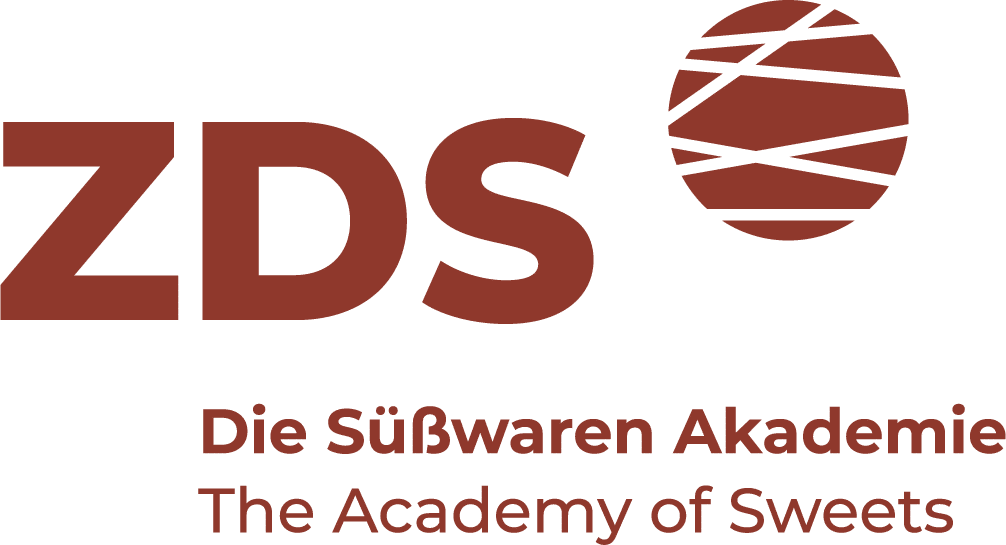Training at ZDS – a good step into the future.
An apprenticeship in the confectionery industry is a good step into the future. As one of the largest branches of the German food industry with a high export share, the confectionery industry offers crisis-proof and sustainable jobs and excellent career opportunities. Get in, please!
Our school organization
Communication
Communication type
Communication is always open, fair and transparent for everyone involved.
The focus is on a family style, true to the motto “Once ZDS, always ZDS”
Communication processes
To ensure the efficiency of our internal and external communication processes, we announce relevant dates (e.g. inspection dates, trade fair visits) at an early stage. There is also a clear distribution of tasks and the regular use of social media channels.
Our customers are advised in detail and involved in the decision-making process.
We attach great importance to the exchange of experience with our partners and to appropriate and regular feedback measures, e.g. through presentations of work results, project work and product development.
Quality management
Teaching staff
Our teaching staff is characterized by a high standard of technical know-how, which is secured and deepened through the many years of industry experience of many colleagues. We maintain and improve our teaching skills through regular further training in didactic, methodological and media topics. Each teacher sees themselves as a point of contact for all matters and therefore takes on tasks in the areas of advising, supporting and mediating. We also take our role model function very seriously.
Technical equipment
We attach great importance to modern technical equipment that, among other things, does justice to digital progress. Our pilot plants and laboratories contain the latest systems, machines and equipment. Our building structure is also subject to constant change, so that regular adjustments and changes are made.
Decision paths
We ensure short and fast decision-making processes. The clear distribution of tasks speeds up organizational processes and increases transparency.
Customer satisfaction
The satisfaction of our customers is our top priority. Regular evaluations of our training courses through customer reviews and feedback always show us potential for improvement, which is incorporated into the continuous improvement process.
Our values
Appreciation
Sustainability
Trust
Fairness
Tolerance
Honesty
Individuality
Respect
Anti-discrimination
Our partners
Teaching staff
- (Specialist) teaching team
- Lecturers for further training
- Speakers for seminars
Public institutions / educational partners
- Employment agency / social insurance agencies / funding agencies
- Associations
- Competent chambers
- School authority
- Universities
Boarding school
- Social and media educators
- State-approved educators
- Experiential teachers and educators
- Social workers
Industrial companies
- Food businesses
- Confectionery companies
Customers
- Apprentices
- Students
- Seminar participants
- People interested in further training
Member companies
Our vision of the future
Continuous absorption of the latest know-how
Expansion of the range of courses
Expansion of national and international networking
Continuous progress
in the digital age
Expansion of the ZDS in its role as a competence center for the confectionery industry
Our responsibility
Theory and practice
- Teaching with fields of action and learning situations
- Visiting trade fairs
- Implementation of operational projects
- Integration of new technologies
- Practical experience with the latest production facilities and laboratory equipment
Digital progress
- Use of interactive whiteboards
- Equipped with tablet class sets
- Online training / web seminars
- Lecture hall with simultaneous translation facilities
- Networking of all course participants via e-learning platform
Professional competence
- Preparing for the start of your career
- Integration into the primary labor market
- Preparing for the international competition
- Training future managers
Accompanying / pioneering support
Unfolding of
- Personal development through regular feedback and enabling customers to contribute to their self-realization.
- own strengths through targeted challenges.
- Creativity by allowing and demanding new ideas and solutions.
Ability to
- holistic learning by involving all the senses in the learning process.
- Co-determination by presenting and practicing the options for influencing social action.
- Teamwork through regular group tasks.
- Communication skills through the development of linguistic and rhetorical skills with student- and team-oriented lessons.
- social learning by learning and developing soft skills.
- ecological awareness through indoor and outdoor activities, where the sensible use of resources and careful treatment of nature is practiced.
- Improve time management and self-organization by regularly testing the planning and execution of tasks to be completed.
- for meaningful leisure activities through a wide range of different leisure activities.
- positive personality development through special emphasis on social-emotional support.
- independent learning through subject-specific learning support in the form of mentoring programs and assistance before examination situations.
- critical thinking and judgment through the ability to analyze, critically question and evaluate problematic contexts from a distance.
- Personal responsibility by conveying social role awareness in general and the professional role in particular.
- self-organized learning through the use of distance learning, self-research, learning groups and block break tasks.
- Self-reflection, self-evaluation, self-assessment through differentiated illumination of self-image, image of others and desired image.
Promotion of
- Professional expertise through the continuous expansion of current technical know-how.
- Methodological competence through the application of specialist knowledge to typical industry problems in action-oriented lessons.
- Social competence through the expansion of social scope for action through an intensive exchange of experiences within the course participants.
- Media literacy through critical use, analysis and evaluation of mass communication media.
- Social competence through the pedagogical accompaniment of social change.
